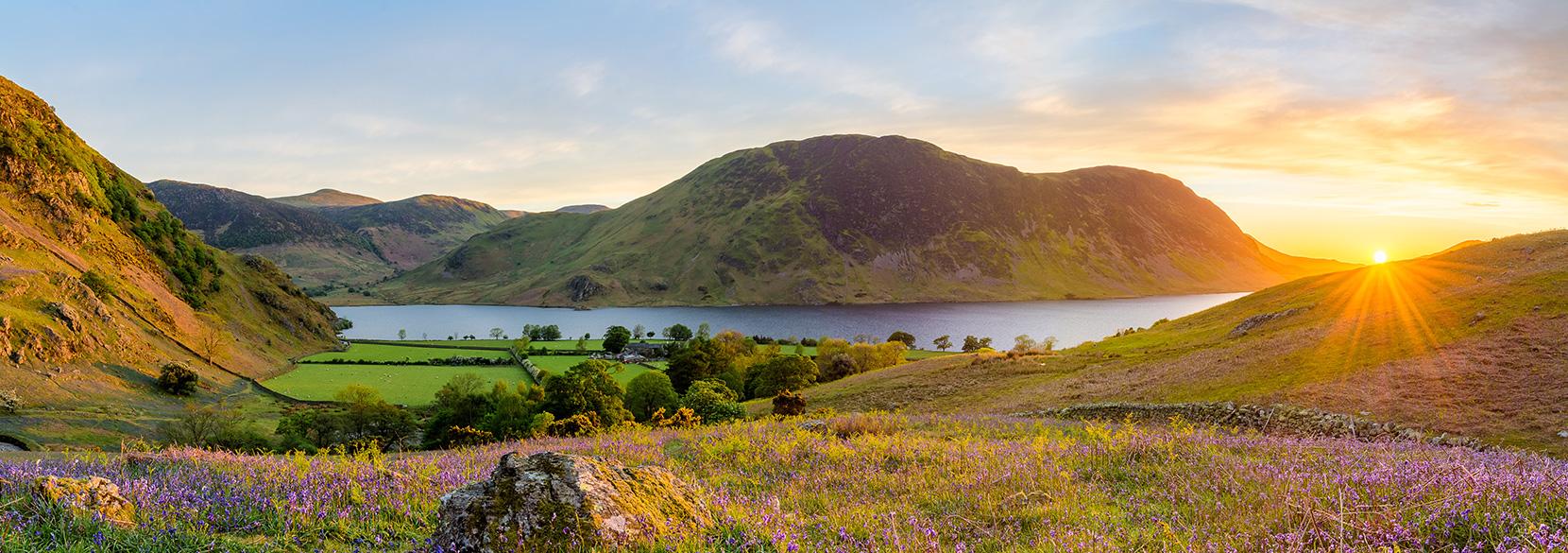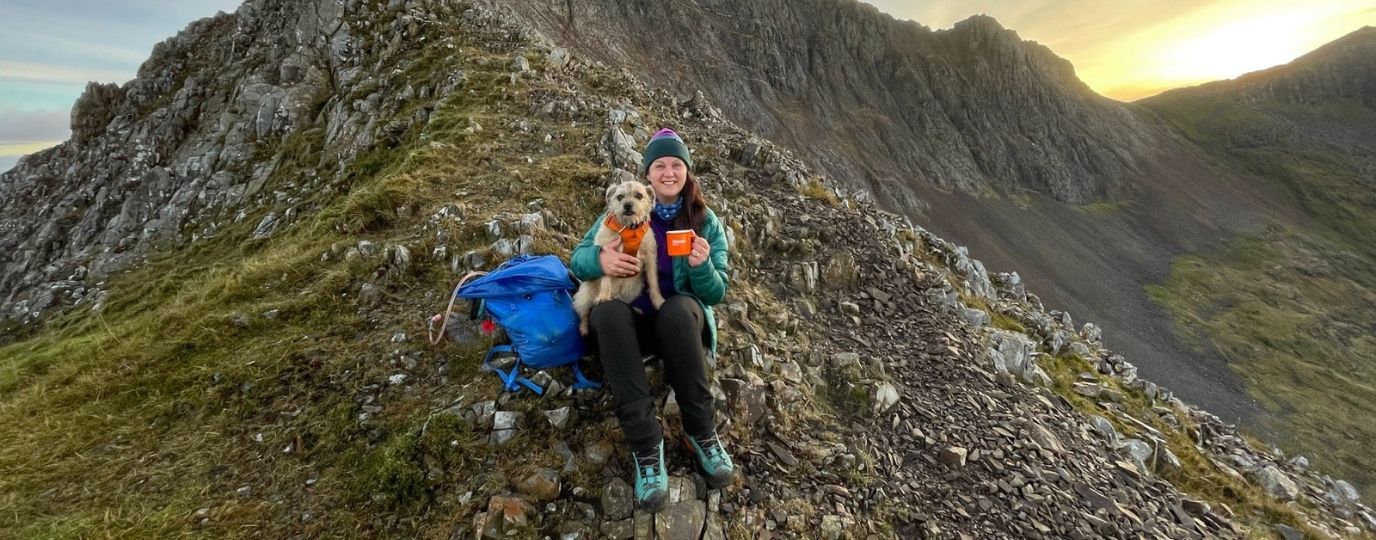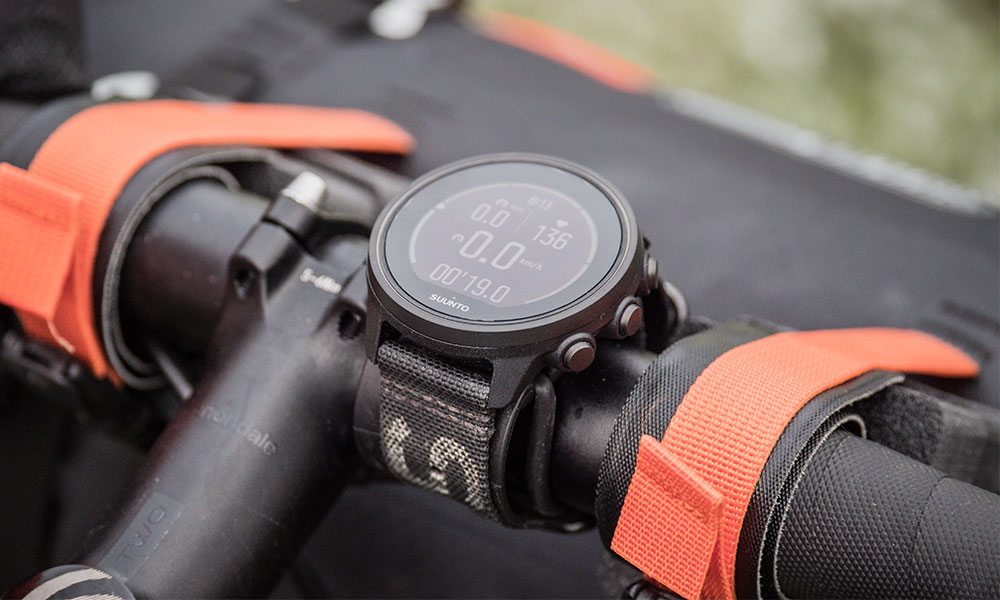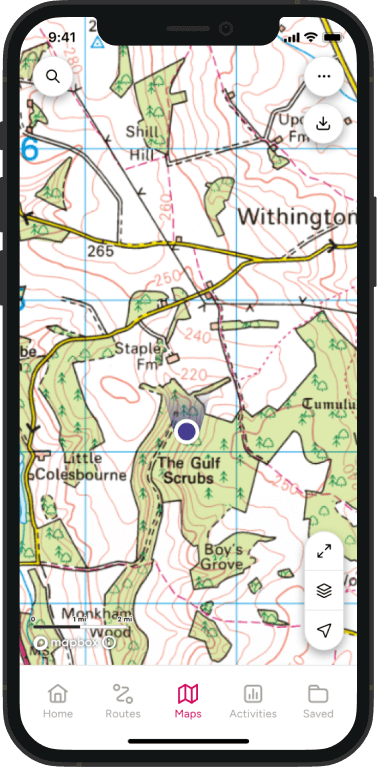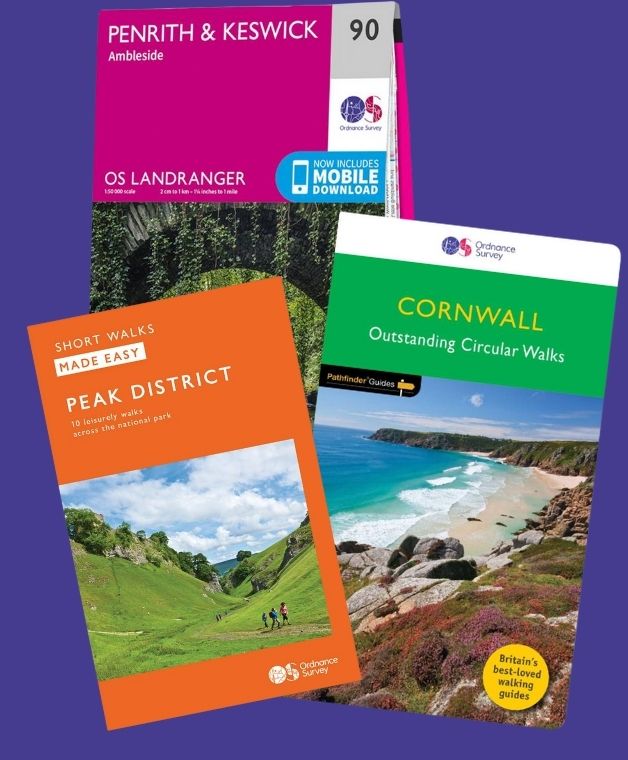What is the Best Food for Hiking?
Ben Turner is an MNU certified evidence-based nutritionist, level 4 Personal Trainer and avid adventure enthusiast. In this post Ben takes you through the best food for hiking, the best drinks for hiking and how to avoid energy dips and general exhaustion through the right nutrition.
Why the right nutrition is so important when hiking
Let me take you on an adventure. We are hiking the Brecon Beacons, it’s a sunny day, the warmth radiates through our skin and warms the soul. Visibility is excellent and the hills show off their majesty before us. But the rucksack is heavy, sweat is beading down our faces the heat is bringing on a headache and as much as we can’t wait for the pub dinner, all we have is a few biscuits and jelly sweets to keep us going.
Soon the splendour of the hills disappears, and our vision narrows to our feet, plodding away up the never-ending hill and false summits that linger before us. Our muscles are burning, the stop we just took filled our legs with a tingling light feeling that is replaced with a dull and stubborn ache that doesn’t go away. We have a spare bottle of water, but as the pace slows inexorably through fatigue, we start to wonder if we have enough to last. There is still a long way to go…
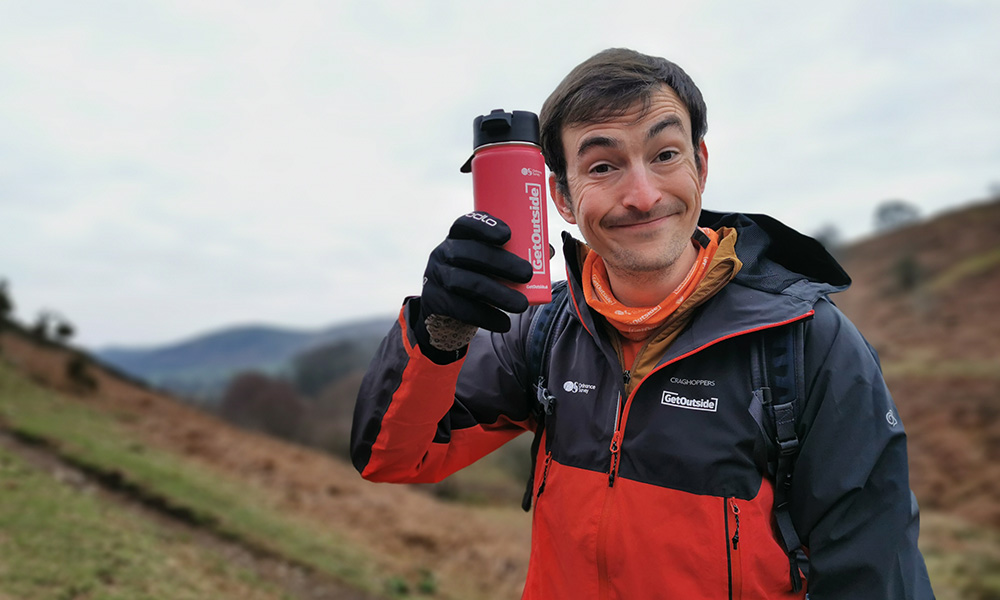
Welcome to a place I know all too well, welcome to the exact situation I was in while army training in the Brecon Beacons, staring up a really long hill. Fuelled only on Haribo I experienced first-hand the significant spikes and crashes that come with unsustainable insufficient sugars for prolonged exercise. As a summer and winter mountain leader, qualified evidence-based nutritionist, and personal trainer, I look back on these moments both fondly as experience, and critically with greater knowledge of nutrition, hydration, and exercise.
How to avoid running out of energy on a hike
I want stress the importance of nutrition in the great outdoors, Nutrition is completely individual, but there are some evidence-based foundations from which we can create our own strategies to fuel our adventures and bring about to maximum performance and the enjoyment of the hills. By the end of thios post you will know what the best hiking food will be for you to stay energised on your next big adventure in the mountains.
Before you set off hiking for the day
Preparing for a day on the hills depends on what we are planning to do, there is a significant difference to a 30-mile epic and walking the dog. Our nutrition strategies should reflect this necessity for adaptation. The saying that ‘the army marches in its belly’ and the subsequent push to eat a huge amount of food in the morning or the night before setting out on a long hill day where constantly repeated to me. But, digestive issues, cramp, toilet breaks in the bushes and general sluggishness posed an evident issue in this theory. So how can we fuel adequately for long days out on the hill?
4 key factors for getting the right food when hiking:
- Carbohydrates are the body’s preferred fuel source and along with fat make up where you will get energy from on the hill. If your day has with lots of climbing or distance (or both!) then aim to consume 8-10g/kg bodyweight of carbohydrates, over 2-3 days prior. For a 78kg individual, this would be 624-780g (~300g per day).
- Eat a good breakfast that will make you feel satisfactorily full and leave 1-1.5hrs before setting off to allow for digestion, keep the fibre to a minimum to avoid unplanned toilet breaks!
- For breakfast, aim for 1g/kg bodyweight of carbs and 20-25g of protein (to help reduce muscle damage).
- Drink at least 3 litres of water a day leading up your big hike, or daily if you are in the hills regularly. On the morning of your hike, aim to consume approx. 1 litre prior to stepping on the trail.
Energy Spikes and Crashes when Hiking
Your body is like a car engine that can run off both petrol (carbs) and diesel (fat). The human body has the ability to burn both, the intensity of the exercise will dictate what fuel you burn, the higher the intensity, the more carbohydrates are required.
When out hiking, you are going to encounter a mixture of high intensity and low intensity exertion as the terrain changes. You need to have an adequate mixture of food when out and about, so you are not riding the roller-coaster of sugar spikes and crashes.
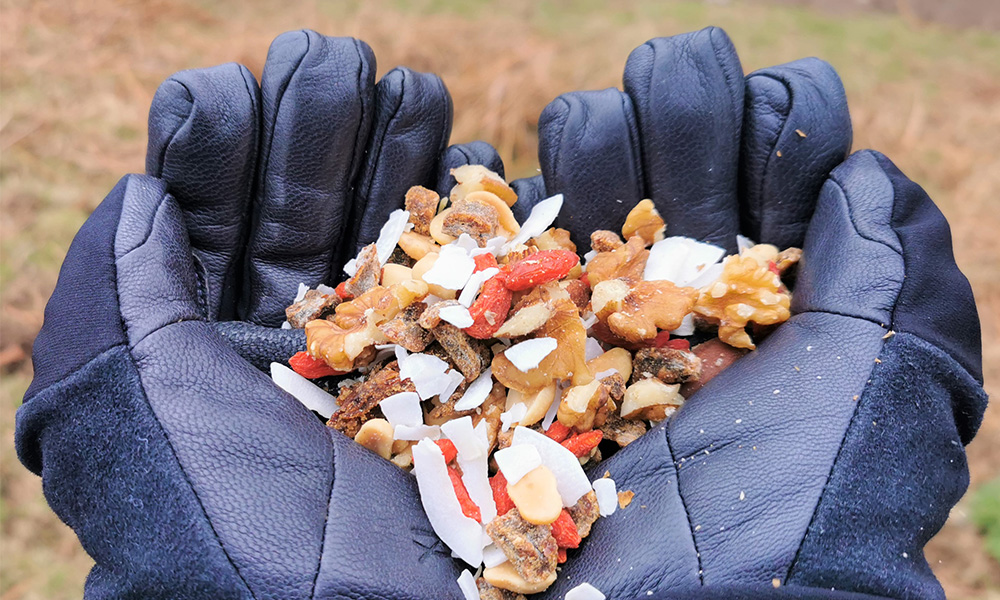
5 Best Hiking Snacks:
- Whole food bars – High in protein, carbohydrates, and fats for an all-round hit of long-lasting energy.
- Trail Mix – Go nuts here! Mix dried fruits with seeds and nuts and banana chips, mix in broken pieces of dark chocolate. TIP: Tear up pieces of fruity malt loaf and mix them all together in a bag, this moulds into a tear’n’share brick of delicious nutrition.
- Sandwiches – The humble sandwich is underrated, be sure to pack in some protein, some fats, and some salad. Cheese, ham, and pickle anyone!?
- Olives – Olives are an amazing source of mono-unsaturated fats, they are salty and delicious and give your palate a break from too much sweetness (a common mistake in nutrition strategy).
- Water – Not quite a food, but essential in our nutrition planning, we need to consume enough fluids, mainly from water. Aim for 250ml per hour and add in an electrolyte for longer and hotter days.
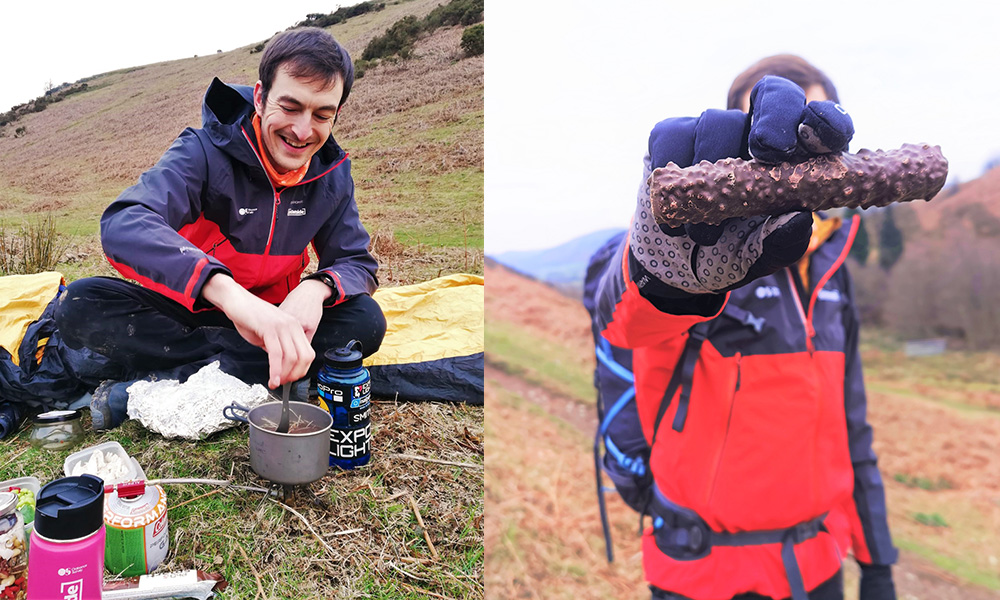
Getting the mix of nutrients right for your hike
Your body burns energy, depending on the intensity and effort of your hike, you may need more food to replenish, rebuild, and recover, so that you can get back out the next day, or at the very least, wake up a little less sore. After physical exertion, our body is primed to absorb nutrients, its ready for food.
5 Best Hiking Recovery Foods
- Protein – Aim to consume 30-35g in protein with some carbohydrates within 1-2hrs of finishing. You can get this from a tin of tuna in a sandwich with two slices of wholemeal bread.
- Carbohydrates – 1g/kg bodyweight of carbohydrates post exercise will help you replenish energy stores. Combine with protein (like a sandwich) and you will help control your appetite.
- Hydration – Kickstart your recovery process by hydrating straight away, drink 2lt over 1-2hrs post exercise. On hot days, add an electrolyte tablet or a pinch if salt into your drink to avoid cramping and improve rehydration.
- Back to normal – Once you have eaten some protein, some carbohydrates and drank plenty, continue with your normal eating pattern, getting plenty of protein, whole and unprocessed foods, and plenty of vegetables.
- Avoid processed foods – We know that fast foods are not great for our health. You only have one body, and it has to last you for the rest of your life. Just because you CAN run a car on vegetable oil, doesn’t mean you SHOULD.
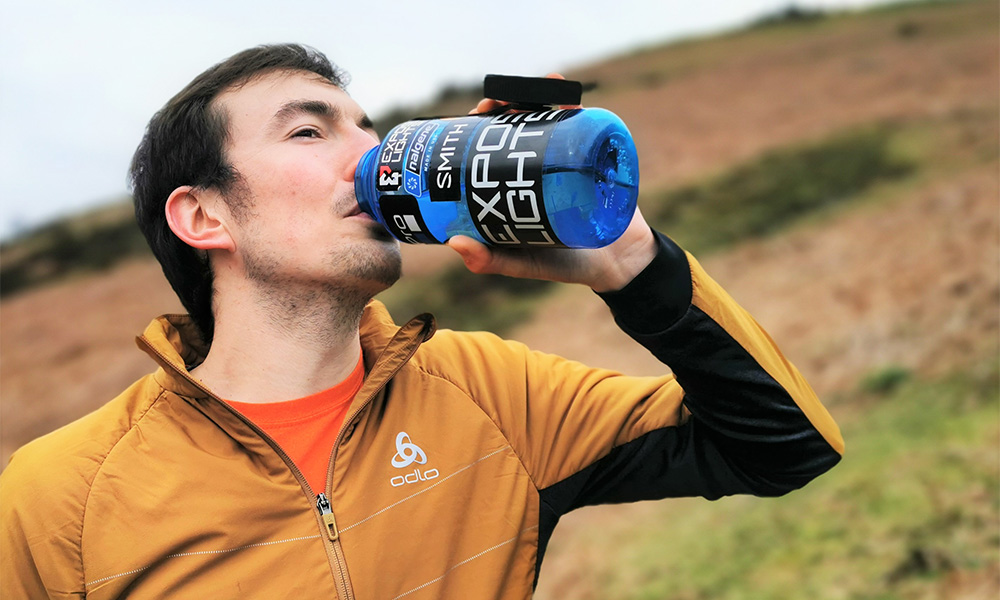

Piecing it all together
How does all this fit together with hiking and a healthy lifestyle? We don’t need to buy supplements, take shakes, and eat bars that taste like flip flops, but how do we use food for fuel AND food for fun?
Here are my top tips to integrate these strategies with a healthy balanced diet:
- Set the foundation – Consume a plant centric diet with or without meat or fish with plenty of variety with wholegrains, unprocessed foods and 2-3 litres of water a day.
- Prepare – If you have a big day planned, or a multi-day course, eat slightly more in the 2-3 days leading up to the start to make sure you have adequate energy.
- Start with a full tank – Start your day by eating and hydrating. A mixture of carbohydrates, fats and protein will serve you well, but try to keep the fibre to a minimum.
- Feed the effort – If you are enjoying an easy day out, a small snack will likely suffice. If you are heading out on a mountain day with climbs and strenuous stretches, try to eat before and during the hard sections with foods you enjoy and you like to eat.
- Refill – When you are done for the day, eat some real food snacks to help you control hunger, refuel, and feel fantastic. The pub dinner is the hiker’s best friend, and there is nothing wrong here, but try not to overeat, its far better to eat a little less and truly enjoy the satisfaction.
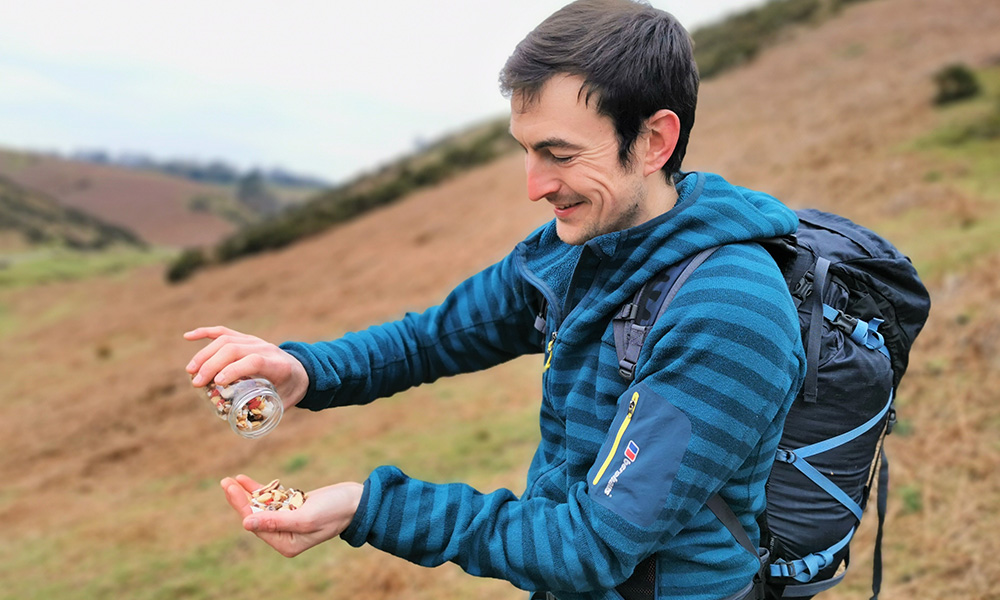
Share your best food for hiking with us!
Let us know by sharing a picture of your hiking food and snacks in your next post, be sure to tag us #ordnancesurvey and drop a mention so we can find and share the post.
Ben Turner is an MNU certified evidence-based nutritionist, level 4 Personal Trainer and avid adventure enthusiast. The founder of 21st Century Body, Shropshire’s leading nutrition consultancy, Ben works with a range of clients from elite and amateur athletes to busy families trying to make healthier choices. Through a consistent to approach, analysing research and applying evidence to experience, Ben has developed a proactive centred on the healthy attitude to food, a habit-based approach and never demonising or overly restricting foods.
